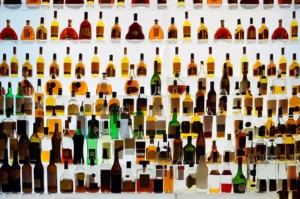How Long Does Alcohol Poisoning Last? Factors, Symptoms, and More

If it IS alcohol poisoning, the person will need to go to the hospital for fluids to recalibrate their blood alcohol content. If it is an opioid overdose, the person will need medical personnel to administer naloxone AND immediately get to the hospital before the naloxone wears off. This article looks at fatal blood alcohol levels, signs and treatment of alcohol overdose, what BAC is and signs of different BAC levels, and support with managing or quitting drinking. Alcohol in the form of ethanol, also called ethyl alcohol, is in alcoholic beverages. It’s also in mouthwash, some cooking extracts, some medicines and certain household products. Ethyl alcohol poisoning generally results from drinking too many alcoholic beverages in a short period of time.
Alcohol Poisoning and Overdose
Talk with your teenagers or young adult children about the dangers of binge drinking and high intensity drinking. This includes discussing drinking games, which can easily lead to alcohol poisoning. Also, emphasize the importance of knowing when enough is enough, and discuss how to intervene if a friend is drinking too much https://ecosoberhouse.com/ or too quickly. To prevent alcohol poisoning, drink alcohol in moderation. This generally means having one drink per day for females or having two drinks per day for males. People who have not previously consumed alcohol have a minimal tolerance for the substance, and they can be dangerously vulnerable to alcohol poisoning.
How do increasing levels of alcohol affect the body?
- Having too much alcohol in your blood stops your body working properly and can be life-threatening.
- Even small increases in BAC can decrease motor coordination, make a person feel sick, and cloud judgment.
- If vomit is inhaled into the lungs, it can cause a person to stop breathing.
- Both young people and adults can experience alcohol poisoning.
Alcoholic drinks contain a form of alcohol known as ethyl alcohol or ethanol. This is also found in mouthwashes, some medicines, and household products. Poisoning happens when you drink too much ethyl alcohol in a short space of time.

Alcohol intoxication
- Alcohol poisoning happens when there’s too much alcohol in your blood, causing parts of your brain to shut down.
- If you suspect an alcohol overdose and the person is unconscious, do not leave them alone.
- So, while it might only take four drinks for you to be legally intoxicated, it’d take quite a bit more to kill you.
- An alcohol overdose can damage your pancreas, which digests food and monitors the levels of glucose in your blood.
The Centers for Disease Control and Prevention estimates excessive alcohol use causes approximately 88,000 deaths annually in the United alcohol overdose States. They may also experience seizures or have blue-tinged or pale skin. Their breathing and gag reflexes will likely be impaired.
Alcohol poisoning
If you combine alcohol and drugs, you may not feel the effects of the alcohol. This may cause you to drink more, increasing your risk for an alcohol overdose. Having a high tolerance for alcohol or drinking quickly (for example, by playing drinking games) can put you at increased risk for an alcohol overdose. Men are more likely than women to drink heavily, resulting in a greater risk for an alcohol overdose. BAC and the number of drinks you consume are very rough indicators of impairment. It’s defined as when a man has five drinks or more within two hours or when a woman has four or more drinks within two hours.
Binge drinking

Anyone who drinks large amounts of alcohol in a short amount of time is at risk of alcohol poisoning. Teenagers and young adults often binge drink or engage in high intensity drinking. Call 911 if someone is displaying any symptoms of alcohol poisoning, which can include slow breathing and passing out. A person’s breathing and blood circulation will be extremely slowed.
Signs of Alcohol Poisoning
The symptoms of alcohol intoxication range from mild to severe, depending on how much alcohol a person consumes and how quickly their body metabolizes it. Alcohol intoxication refers to a temporary condition that occurs when a person drinks an excess of alcohol at one time. It causes physical and behavioral symptoms that range from mild to severe. It’s a myth that a person can recover from alcohol intoxication by sleeping, taking a cold shower, going for a walk, or drinking black coffee or caffeine. In fact, doing these things can put an intoxicated person at greater risk of injury and death.
- Having a high tolerance for alcohol or drinking quickly (for example, by playing drinking games) can put you at increased risk for an alcohol overdose.
- To prevent alcohol poisoning, drink alcohol in moderation.
- During the recovery period, a person may experience a depressed mood and appetite, discomfort, and memory problems.
- In fact, according to the World Health Organization, alcohol-related deaths total around 3 million each year globally.
Health Topics: Alcohol Overdose

What to know about alcohol intoxication

